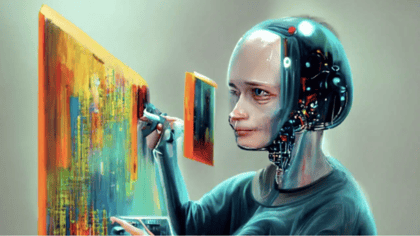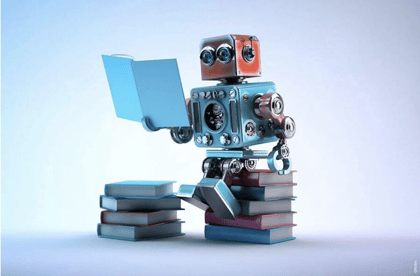Innovation and AI: The Transformation of Education - A Psychological and Cultural Phenomenon
 Imagine climbing a ladder, each rung representing a goal achieved. You ascend, reaching higher and higher, propelled by the ladder's purpose. But what happens when you finally reach the top? The ladder, once vital, becomes redundant—a relic of your past accomplishments. It no longer serves its purpose and may even hinder your progress toward greater heights.
Imagine climbing a ladder, each rung representing a goal achieved. You ascend, reaching higher and higher, propelled by the ladder's purpose. But what happens when you finally reach the top? The ladder, once vital, becomes redundant—a relic of your past accomplishments. It no longer serves its purpose and may even hinder your progress toward greater heights.
This powerful metaphor, inspired by Ludwig Wittgenstein, draws a fascinating parallel to our educational systems and the ever-changing landscape of innovation. In our fast-paced world, where change is constant, education must continuously adapt and evolve. However, the rapid influx of new ideas and approaches can leave teachers and students bewildered. Just as we begin to grasp one innovation, countless others emerge, demanding our attention and mastery.
This perpetual process of substitution, a "solution of continuity," sees new pedagogical ideas replacing their "classic" or "traditional" counterparts as responses to perceived deficiencies. But amidst the quest for novelty, we must pause and reflect on the pedagogical implications of this incessant change.
On one hand, educational systems increasingly acknowledge the diversity within classrooms, recognizing the unique needs of individual students and the impact of their environment. Consequently, curriculum adaptations promoting personalization and differentiation have become more prevalent, embracing inclusivity as a means to address this diversity.
However, the pursuit of innovation has led us to discard ladders with increasing frequency, rendering them useless in our quest for revolutionary, transformative, and future-oriented education. In our educational landscape, emerging innovations often resemble temporary remedies or short-lived ladders that address immediate needs or expectations. But their relevance fades as trends and fashions shift, leaving us in search of the next ladder to climb.
 Education is, therefore, a process of perpetual change. Sometimes, innovations transcend mere methodological improvements and prompt us to question the fundamental functions and essence of educational systems, organizations, and nations. We must discern the aspirations of educational institutions and systems and the intended impact on students. What are their ultimate goals?
Education is, therefore, a process of perpetual change. Sometimes, innovations transcend mere methodological improvements and prompt us to question the fundamental functions and essence of educational systems, organizations, and nations. We must discern the aspirations of educational institutions and systems and the intended impact on students. What are their ultimate goals?
Today, as AI emerges as a prominent mediator or assistant in future education, it compels all stakeholders—teachers, educational leaders, parents, students, and the education system at large—to reflect deeply. How can we address diversity effectively with a tool that, despite its productivity, may inadvertently stifle creativity and critical thinking? How can we foster exceptionalism among students when AI increasingly automates tasks, hindering the development of time-intensive creative abilities?
These AI tools are designed to optimize time, minimizing the apparent wastefulness of creative thinking, inquiry, and deep exploration. This raises the crucial question: Could this be the end of education as we know it?
The future of education remains uncertain, as the full impact of AI on the educational system continues to unfold. It is essential for us to strike a delicate balance between leveraging artificial intelligence and nurturing creativity and critical thinking in students. Education must transcend the realm of time optimization and task automation; it should cultivate the uniquely human skills and capacities that define us.
Ultimately, the fate of traditional education lies in our ability to navigate the challenges and seize the opportunities presented by innovation, including AI. As the renowned philosopher John Dewey once proclaimed, "Education is not preparation for life; education is life itself." In this context, we must recognize education's vital role in shaping autonomous, critical, and creative individuals who can adapt and actively contribute to our ever-evolving world.
References:
Dewey, J. (1938). Experience and Education. New York: Simon and Schuster.
Wittgenstein, L. (1953). Philosophical Investigations. Oxford: Blackwell.